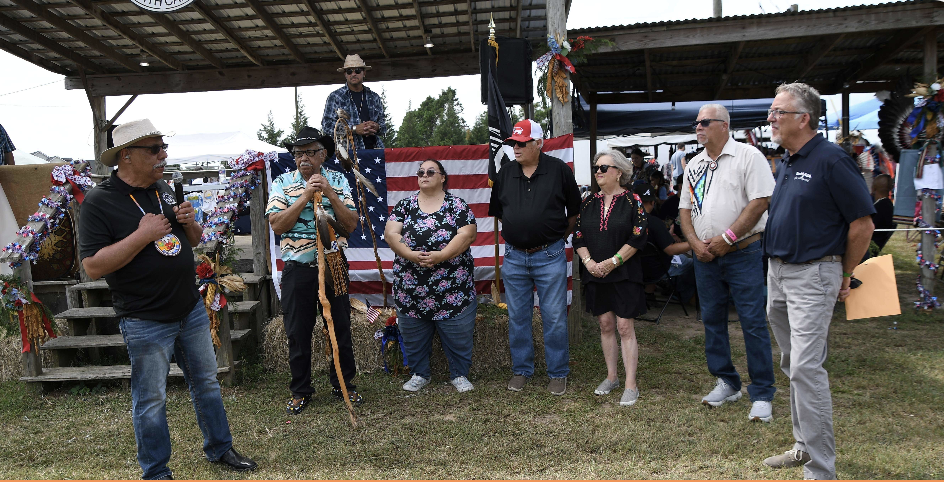
- Details
- By Native News Online Staff
During the 55th annual Coharie Powwow in Clinton, North Carolina, held on Saturday, Sept. 13, Smithfield Foods made a significant gesture of support by donating 103 acres of farmland to the Coharie Tribe.
“At Smithfield, we believe that strong communities are the foundation of a thriving future,” said Craig Craft, real estate specialist for Smithfield Foods. “We are honored to donate 103 acres of farmland to the Coharie Tribe to support agriculture, youth education and conservation for future generations.”
The Coharie Tribe, a state-recognized Native American community descended from the Neusiok Indians, has long-standing ties to Sampson County. Through events like the Coharie Powwow, the tribe actively works to preserve its culture and pass down its traditions.
“As members of the Coharie Tribe, we feel humbly grateful for the recognition and land gift we recently received from Smithfield Foods,” said Greg Jacobs, tribal administrator for the Coharie Tribe. “For many years, Smithfield has increased our opportunity for gainful employment. Our ancestors’ visions are being fulfilled as we improve the quality of life for present and future generations, and we thank Smithfield for being a catalyst for the growth of our community.”
This land donation is part of Smithfield’s broader commitment to fostering stronger communities through local partnerships and impactful initiatives. Whether it’s supporting public services, advancing education, or addressing food insecurity, the company continues to invest in efforts that bring lasting, positive change.
More Stories Like This
50 Years of Self-Determination: How a Landmark Act Empowered Tribal Sovereignty and Transformed Federal-Tribal RelationsLancaster County to Recognize Conestoga-Susquehannock Tribe on Massacre Anniversary
How the Gaming Economy Helps Tribes Navigate Shifting Policies
Prairie Band Potawatomi Nation Fires Executives After ICE-Related Contract Sparks Outcry
Tlingit Haida Tribal Business Corporation Clarifies Federal Contracting Work
Help us defend tribal sovereignty.
At Native News Online, our mission is rooted in telling the stories that strengthen sovereignty and uplift Indigenous voices — not just at year’s end, but every single day.
Because of your generosity last year, we were able to keep our reporters on the ground in tribal communities, at national gatherings and in the halls of Congress — covering the issues that matter most to Indian Country: sovereignty, culture, education, health and economic opportunity.
That support sustained us through a tough year in 2025. Now, as we look to the year ahead, we need your help right now to ensure warrior journalism remains strong — reporting that defends tribal sovereignty, amplifies Native truth, and holds power accountable.
 The stakes couldn't be higher. Your support keeps Native voices heard, Native stories told and Native sovereignty defended.
The stakes couldn't be higher. Your support keeps Native voices heard, Native stories told and Native sovereignty defended.
Stand with Warrior Journalism today.
Levi Rickert (Potawatomi), Editor & Publisher


